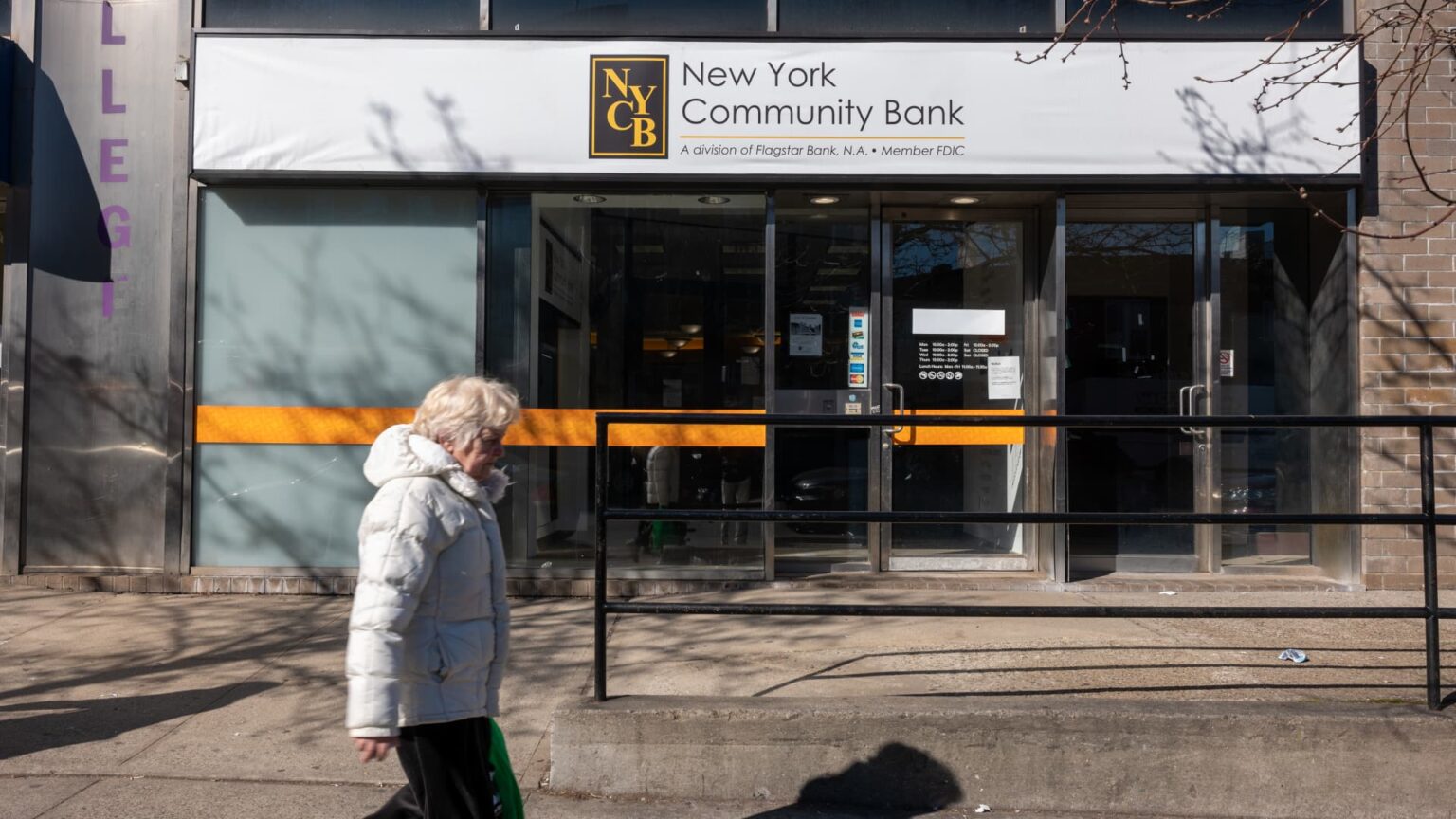A sign is pictured above a New York Community Bank branch in Yonkers, New York on January 31, 2024.
Fresh Mike | Reuters
Regional Lenders New York Community Bank After one of the company’s key ratings was downgraded for the second time in a month, deposits will have to pay more to maintain.
Late Friday, Moody’s Investors Service cut NYCB’s main banking subsidy deposit rating by four notches, from Ba3 to Baa2, putting it three levels below investment grade. This was followed by a two-digit downgrade from Moody’s in early February.
The reduction could trigger contractual obligations from NYCB’s business clients that require the bank to maintain its investment-grade deposit rating, according to analysts who track the company. Consumer deposits at FDIC-insured banks are covered up to $250,000.
NYCB has found itself in a stock freefall that began a month ago when it reported a surprise fourth-quarter loss and tough provisions for loan losses. Concerns intensified last week when the bank’s new management found “material weaknesses” in the way it assessed its commercial loans. The bank’s shares have fallen 73 percent this year, including Monday’s 23 percent drop, and now trade for less than $3 a share.
Of key interest to analysts and investors is the status of NYCB’s deposits. Last month, the bank said it had $83 billion in deposits as of Feb. 5, and 72 percent of them were insured or guaranteed. But the figures are from the day Moody’s downgraded the bank’s rating, fueling speculation about a possible flight on Friday.
Moody’s downgrade could affect the funds in at least two areas: a “banking as a service” business that had $7.8 billion in deposits as of a May regulatory filing, and a mortgage escrow unit that Between $6 billion and $8 billion are deposited.
“There is a potential risk of servicing deposits in the event of a decline,” Citigroup analyst Keith Horowitz said in a Feb. 4 research note.
NYCB officials told Horowitz that the deposit’s rating, which Moody’s pegged at A3 at the time, would have to fall four notches before it was in jeopardy. It has dropped six numbers since the note was published.
During a February 7 conference call, NYCB Chief Financial Officer John Pinto confirmed that the bank’s mortgage escrow business needs to maintain investment grade status and said deposit levels in the unit fluctuate between $6 billion and $8 billion. is the.
“If there’s an agreement with these depositors that you have to be investment grade, theoretically that would be a triggering event,” KBW analyst Chris McGarity said of Moody’s downgrade.
NYCB did not immediately respond to calls from CNBC or an email seeking comment.
It was not determined what the agreement would compel NYCB to do in the event of a breach of its investment grade status, or whether the agreement would require a downgrade from multiple rating firms. To activate the provisions of For example, while Fitch Ratings downgraded NYCB’s credit ratings last week, it kept the bank’s long-term insured deposits at BBB-, one level above.
To replace the deposits, NYCB could make brokered deposits, issue new loans or borrow from the Federal Reserve’s facilities, but all of that would come at a higher cost, McGarity said.
“They will do whatever it takes to keep the reserves at home, but as this scenario is presenting, it could be more cost-prohibitive to fund the balance sheet,” McGarity said.
Don’t miss these stories from CNBC PRO:
